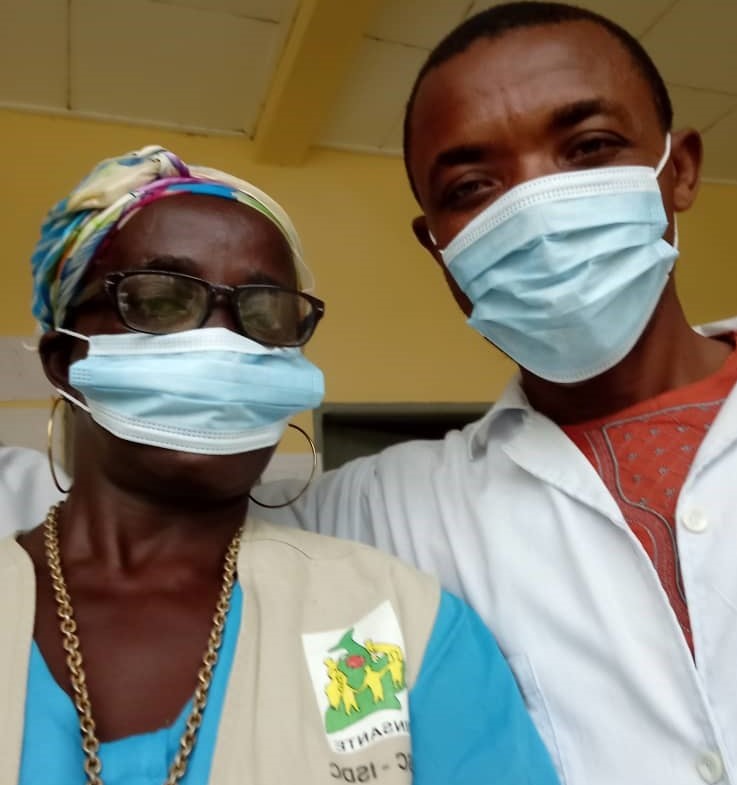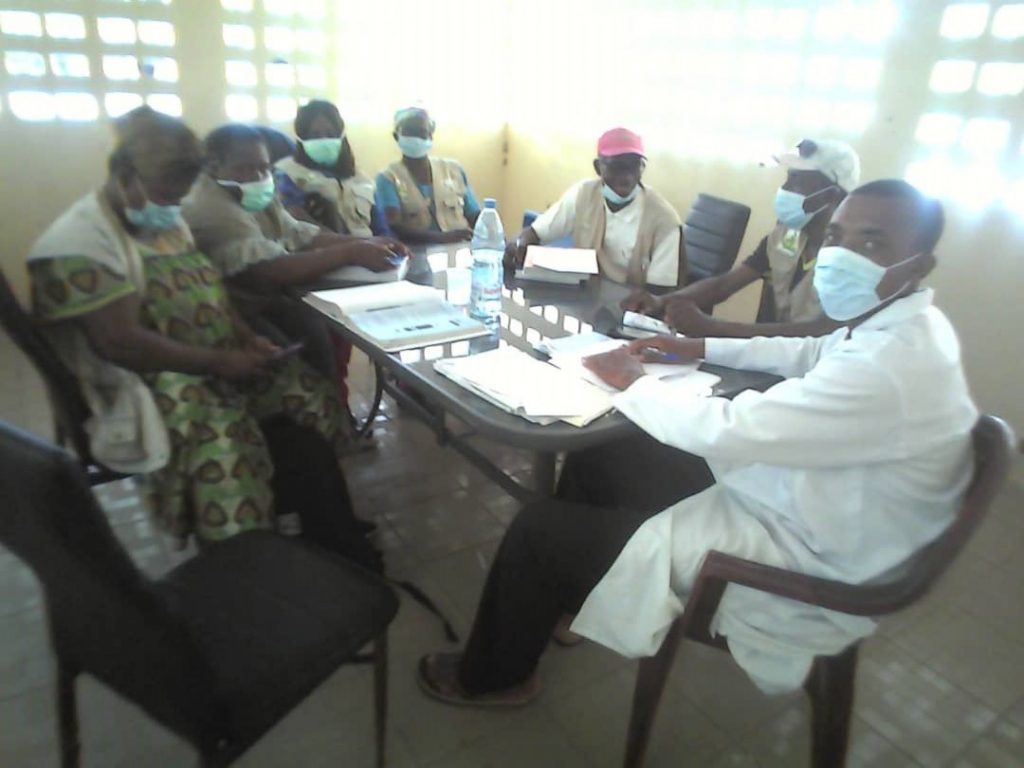Mahelet Ritha, affectionately known as Maa-Ritha, is a community health worker (CHW) from Bongahele village in the South region of Cameroon. She is proud to be part of a network of CHWs bringing health care services directly to people in their communities, which are often far from a health facility. Maa-Ritha and her fellow CHWs raise awareness, manage simple cases of malaria, diarrhea and pneumonia, and refer serious cases to surrounding health facilities for additional care. Lack of accessibility to care is a common problem facing those living in rural Cameroon and one these CHWs are working daily to remedy.
Bongahele is one of seven villages that make up the Grand Batanga health zone, which serves a population of 1,739. As in many areas in Cameroon, people in Grand Batanga lack access to primary health care. The villages are served by two health centers and a private hospital, but over 50% of Grand Batanga’s population lives more than 5 kilometers from these health facilities.

In 2018, to address the problem of accessibility, the Ministry of Health created a network of CHWs who, unlike former CHWs linked to one or two health areas, provide a variety of services to their communities. These services include integrated management of childhood illnesses such as diarrhea, uncomplicated respiratory infections, and prevention and treatment of malaria. The program is implemented in collaboration with and under the supervision of the directors of local health centers, which is an essential step in connecting remote or rural communities to needed health services.
Since 2011, Jhpiego has supported the Government of Cameroon’s efforts in the fight against malaria through the “Improving the Quality of Malaria Control Services” project, funded by the ExxonMobil Foundation. The project aims to strengthen the network of CHWs to provide high-quality community-based services. To this end, Jhpiego provided training to 38 CHWs selected by their communities, including seven of whom are from the Grand Batanga zone, to serve their communities and support the health facilities in their areas. The project equipped them with antimalarial medications, such as artesunate and amodiaquine, rapid diagnostic tests for malaria and other essential supplies.
Maa-Ritha was among the CHWs who attended Jhpiego-funded trainings, in 2012 and 2018, to learn how to provide these much-needed health services for her community. “Before my training, I was not quite sure how to detect danger signs in a child with diarrhea or fever, and sometimes I thought it wasn’t necessary,” Maa-Ritha said. “Now I understand why, and many children have been saved because I referred them in time.”
Maa-Ritha works closely with the head of the health zone, Nurse Azambou Giscard, who has been impressed by her dedication to the Great Batanga community. Since 2016, Giscard has overseen the health area’s activities including the follow-up and supervision of CHWs. The Jhpiego team, in collaboration with the district health management team, provided Giscard with training on effective supervision techniques and logistical support to conduct supervision and monthly meetings.
Giscard takes to heart his role of supervisor, conducting quarterly supervision of the CHWs in their respective villages and organizing monthly meetings for the verification and validation of CHW data. During their meetings, Giscard asks about any challenges the CHWs face and gives feedback. The CHWs are proud to work with Nurse Giscard. They describe him as a rigorous supervisor who gives valuable advice to lead the team to success, which has in turn translated to positive health outcomes for the Grand Batanga health zone.

The health zone’s overall performance evaluated on simple case management, sensitization, input management and data management by CHWs increased from 65% in May 2018 to 91% in November 2020 during supervision. Jhpiego supported CHW supervisors and district teams to conduct regular follow-up, and provided tools and medical equipment, as well as a small stipend, which contributed to improving performance.
In 2020, in Grand Batanga, the CHWs provided rapid diagnostic tests for 197 patients with fever, which showed a 100% confirmation rate for malaria. Of these cases, 92% received treatment according to national guidelines. The CHWs contributed to raising awareness about the necessity of using insecticide-treated nets, which increased from 40.3% in 2017 to 99% in 2020.[1] CHWs also emphasized the importance of pregnant women receiving the fourth dose of intermittent preventive treatment against malaria, which improved from 23% in 2019 to 47% in 2020.[2]
Through the commitment and leadership of CHWs like Maa-Ritha and supervisors like Giscard, the Grand Batanga health zone has improved its provision of health care services, especially in the quality of malaria care for pregnant women.
[1] Sources: Jhpiego Cameroon BD CHW/FOSA 2017, 2020.
[2] Sources: Jhpiego Cameroon BD ASC/FOSA 2019, 2020.



